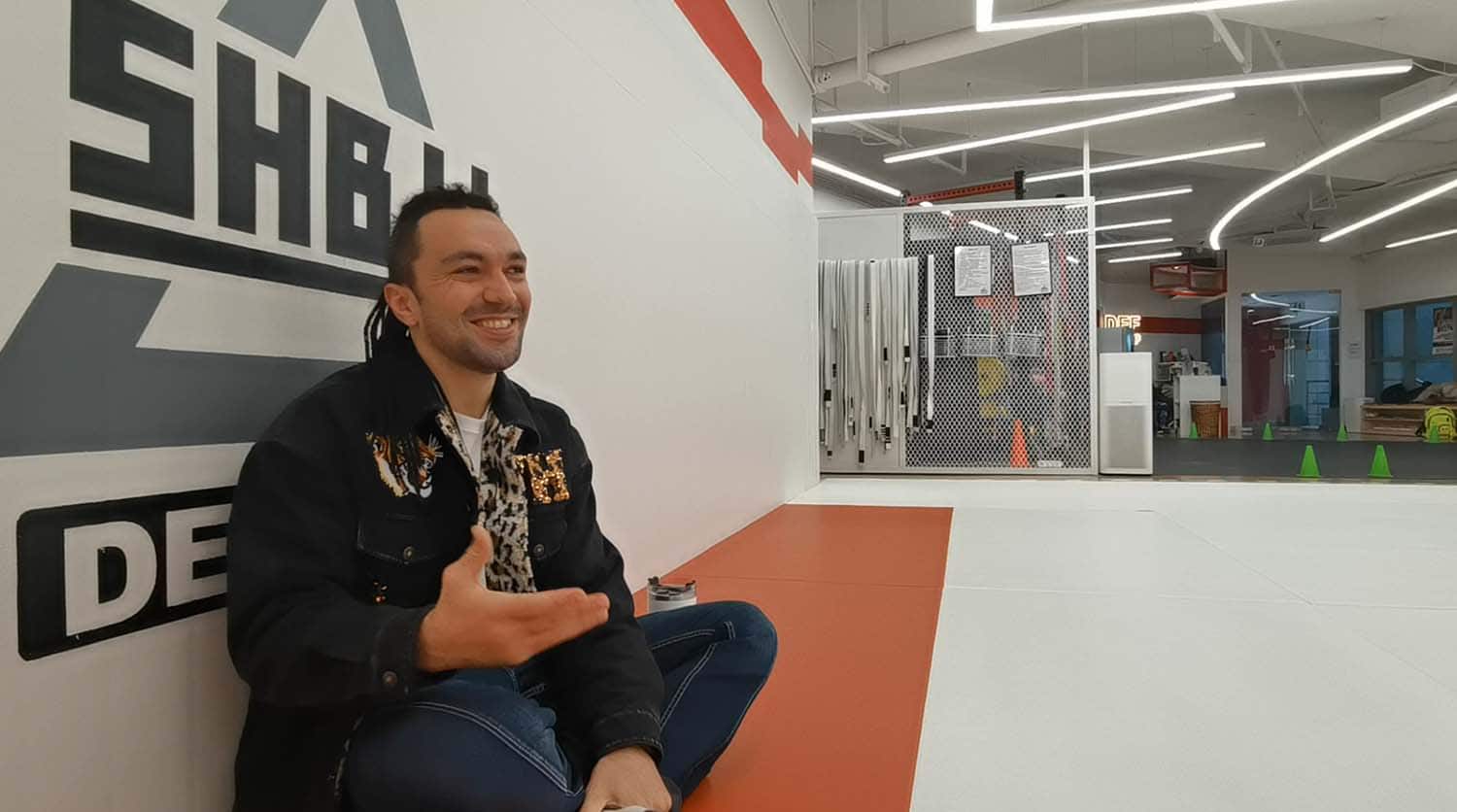Working in China using Mandarin Chinese language
Wondering what it’s like to work in China? We interviewed four foreigners who all use Mandarin in their job in China, and one Chinese native who works with foreigners a lot in Shanghai.
Learning the language
One of the biggest obstacles is speaking the Chinese language, especially in a business context. For this, GoEast Mandarin teaches Business Chinese language courses. These courses prepare you to work in Chinese business situations using Mandarin, with GoEast’s Business Chinese language course. With these courses, you’ll be able to communicate to your staff, clients, suppliers, partners, lawyers & more.
Video about working in China
How to find a job in China
Joshua (乔) D. Melching:
I working at a brand design in China. How I found this job in China is actually interesting. When I first came to China, I went to work at WeWork. In the beginning, I was very nervous, and I felt that I’m a foreigner giving sales training to Chinese people, they will definitely think, what the hell, a foreigner giving us sales training? Later, I was poached by a Chinese developer, and then I worked at the developer for about three months, and then I discovered that I may not be suitable in all aspects of the corporate culture.
Then the developer did a project with this branding company, a sign project in Yangpu, Shanghai. The design company came to introduce themselves, and I got to know their boss in this way and kept in touch with him. Later I found out that they were also expanding, and then there was a chance to cooperate.
Ricardo (厉龙山) Sierra:
I’ve been working in China for about eight years, I’m an insurance representative. I am a representative, but I work with an American company, their name is BMI. When I was in Venezuela, I worked with them for eleven years. They were developing and moving to China, so they needed someone to help them, to work in China. So they contacted me, they knew that I was in China, and I knew the business they were doing, so they contacted me and gave me this opportunity. That’s how I found this job.
Leanne (李安) Sturman:
I’m a graduate student of Shanghai University of Finance and Economics. For my university, I needed to intern in China for six months. My mother had a friend, and he heard that my Chinese is OK. His customer had a company, which was going to be listed in the United States. They needed an American to help them communicate with other Americans, and understand the market situation in the United States. So I moved to Shenzhen to study and work there for six months.
Yunus 大师兄:
I’m working in China as a coach and an athlete — actually, I have been working more as a coach recently. I’m currently working in DEF Group, Shanghai BJJ, in Shanghai, China. I’m actually a graduated industrial engineer. I came to China to work not long after I graduated, and I did business development here for a long time. In fact, my previous career was quite good, maybe my salary was even higher than it is now.
But I did feel a little uncomfortable in my heart. I felt I had China experience anyway, and worked in China for a long time. So I wondered, ‘why not do something I like’, so I made a decision. Anyway, I think there are many opportunities in China, especially in Shanghai. At that time, I was still training at BJJ in Shanghai, and sometimes I would help them if they needed my help. Then I decided, why don’t I want to work here? My coach and the owner of our gym talked about it. They knew me very well anyway, so this transition into this job was easy.
Do you need to speak the Chinese language to work in China?
Joshua:
Yes, when I went to WeWork, it was a requirement to speak Mandarin Chinese. At WeWork in China, I was the sales department, so we had to speak to the customer directly. So basically, the Chinese language requirement is similar to that of native Chinese.
Ricardo:
Yes, it’s a requirement to speak Chinese when you work in China. Because of course, my clients understand English for reinsurance or insurance. However, if it is convenient, sometimes they also use Chinese. Moreover, the first time I contact a company — I need to send an email or call them, or go to their office — I needed to use Chinese every time, because many Chinese people, if they get an email or call in English, they might not reply to you.
My Mandarin Chinese level used to be HSK5, but now it is almost HSK4.5, so in between HSK4/HSK5. But I have a Chinese teacher named Lynn, who helps me learn about finance or insurance topics every week. Therefore, my insurance Chinese may be HSK6, but my other Chinese may be HSK4.
Leanne:
If you don’t speak Chinese, then Chinese people will say ‘this is a foreigner’. But if you speak Chinese when you work in China, they may think, ‘oh, this foreigner is not an ordinary foreigner’, so they’ll slowly bring you into their culture.
Let me give an example. In Shenzhen, I had a few friends, who I met not in the company but in a gym. None of them spoke English. After three months, he asked me whether I wanted to go to a place with the four of us, so they took me to a small city nearby, and it was so fun. At that time, I felt that I was not an outsider, I was just one, just like them. There was no difference. It’s my best memory of working in China, so special.
Yunus:
Most of the time, if your Chinese is not very good, you can be a coach and work in China. I think a sports coach, because what you teach is sports anyway, you can show Chinese students how to do the movements,
But the thing is, I think that if you do things well in China, if you don’t want to be a regular coach — then I think to speak Mandarin Chinese is a requirement, but it has nothing to do with being a coach. I think you like China, and you want to live and find a job here, you want to communicate with people here, you want to know more about China, then I definitely recommend you to learn Chinese. In this way, I do think you have to speak Chinese when you come to find a job in China.
What’s difficult about working in China as a foreigner?
Joshua:
Communicate. It’s not about language communication, but more about cultural and attitude communication. Because maybe foreigners are used to very direct communication on their job. The boss will tell you what you want or what tasks you need to complete. But when you find a job in China, there may be certain things that the boss thinks you need to do, that go without saying. So this may be a challenge about working in China.
Especially in state-owned enterprises, when I go to a Chinese developer, they will not tell you clearly what you are required to do — he or she will feel that this is something you should do anyway, doesn’t need to be explained so clearly. For example, if we have a meeting with a brand design company, and we have a new project. then in the morning you have to come in advance, and then prepare some drinks and food in the office, and then make sure that the meeting environment is very clean, make sure everyone has a book, pencil, etcetera. These things are very detailed. But the boss will not tell you that this is your responsibility, you have to do it. So sometimes I feel that the challenge of working in China isn’t communication, but rather lack of no tacit understanding.
Ricardo:
When you work in China, you’ll see all developments go very quickly. For example, if I ask a Chinese company I need information today, they’ll send it to me tonight. But in the US, if I tell them I need some information, I may have to wait two or three days. When you have a job in China, you’ll see that everything goes fast. So compared with here, my colleagues in the United States or South America, they’re a bit slow.
Yunus:
Some things are very similar in China to my own country. But some things are very different. So I always have great surprises. Sometimes I think I understand China, and then suddenly encountered an individual situation and I think: “Ah? Well, how could it be so different from what I thought?”
What’s best about working in China?
Joshua:
The best thing about working in China, I think when Chinese people work they make a lot of relationships. When you get a job in China, you have to build up your own network. I think this is very interesting here. Myself, I’m a very outgoing, lively and active person. I really like meeting different people, so this is a fun thing for me in China. This is where you can go out social, you can go out to drink, chat. Make your own network, you have to. I think this is very interesting about working in China, and it is very different from the United States.
Ricardo:
There are many, many, many great parts about working in China. I think my favorite aspect of having a job in China, is that China has so many opportunities. It’s easy to find customers and there are a lot of problems to solve. So my company can solve these problems — for instance, a Chinese company in South America needs to buy insurance over here, then we help them. Almost every month or every week we get new inquires for the services of our companies. So, this one is my favorite aspect, in China: New business every week.
What do you need to know before getting a job in China?
Joshua:
Learn the language, learn Chinese! We must do well in Chinese language. If you don’t learn Chinese well, you’ll have difficulties in all aspects of your job. There will be daily communication with common people, there will be problems with meals, travel, and work. So it’s best to learn Chinese in GoEast (Business Chinese Courses), then come to work in China again.
Aside from that, come to your first job in China as a piece of white paper. Of course, you need to understand the local Chinese working culture, see how Chinese offices do things. I met many foreigners working in China, they will use their overseas thinking and practices, and just use them when they arrive in China. Then the Chinese will feel that you are arrogant, and then you don’t respect some of their local customs very much. I think this is something that everyone should pay attention to. When you come to China, you have to abide by local customs and habits.
Ricardo:
I think for me, for my friends, the hardest thing is the first year, when you just arrived in China. Because the culture is different, it’s a different country. You need to understand new things and change some parts of your behavior. The food is different, the attitude is different, and the rules are different. Etcetera.
Leanne:
When you are in China, you need to understand that you are a guest and you are a visitor. China is not your country.
Another thing is that when you first met an American, they will be familiar to your very quickly, very open. But the Chinese people will take their time a bit. It takes a while for them to make good friends.
Yunus:
Just know before you come to work in China, that here there’s a very stable culture, language. So if you come to China, you need to open your mind a bit, don’t have requirements very soon. Try to understand the language here, get to know the people, their habits. If you have such an approach, you will definitely be happier. Then, more people may also want to be friends with you, r support you, or give you more opportunities in work or life. It’s like this.
There are many opportunities to work in China, especially in Shanghai. But, you can’t think, “ah because I’m a foreigner, so many things will be granted, I don’t need to work hard.” Actually not. There are opportunities in China, but you also need to work hard. Because I think I am a hard worker — of course you can work harder — but I feel like this about it. So to work in China is a bit tough, but I also think it’s fair.
If you work hard, and you do well, then you respect the law, then you will have a very good future, and there will be many, many opportunities. But maybe you think ‘ah there aren’t so many foreigners in China’, that you can make money easily. With such a dream, I feel that China may not be very suitable. You may come here for a year or two to work, and then make a little money, feel very happy or something. But you won’t have a long future in China.
What’s it like to work with foreigners in China?
Yiyao Jia:
Foreigners who work in China are very direct with their emotions and feelings and thoughts. This can be good and bad. Some students at LeWagon you can see they get frustrated, and then everyone will notice that. So they’ll just stay away from him or her a little bit.
Which foreigners blend well in China?
Yiyao:
Language is definitely a thing for foreigners who speak very good Chinese. They blend well with Chinese local people. Because although in Shanghai or China a lot of people speak very good English, Chinese among Chinese people still tend to speak Mandarin Chinese with each other. And then the foreigner who can speak Chinese very well, can join their conversations.
Can you learn culture from books?
Yiyao:
No, I think you need to experience and observe it yourself. Come to China and study or work here.
What should foreigners know before getting a job in China?
Yiyao:
Apart from using chopsticks! But seriously, if you go to any new country to work, the language of that country is very important, even if you’re not very fluent in that language, but you can try to learn the basics of Chinese. It helps you to get around. And learn the culture, start to understand it.
And have some patience. By staying in China longer, you’ll start to understand China better and better, how Chinese people work, and you’ll gain more respect for them more — the way they work.
One characteristic Chinese people really appreciate is that you don’t come here as an arrogant person. To be more modest, humble, trying to listen to what other people say, that’s a very good character trait that we appreciate, and it’ll help you succeed for working in China.









